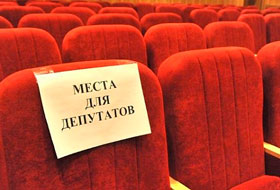Minsk Regional Council justifies violation of procedure for consideration of human rights defender’s proposal
The Minsk Regional Council of Deputies has rejected an appeal by the Salihorsk representative of the Belarusian Helsinki Committee, Leanid Markhotka, against an earlier refusal of the Presidium of the Salihorsk District Council to discuss at its next meeting a draft resolution "On freedom of assembly".
The proposed measures included the abolition of illegal restrictions on street protests imposed by the district executive committee. The human rights defender argued that it ran counter to the International Covenant on Civil and Political Rights. Ivan Lipnitski, Chairman of the Minsk Regional Council of Deputies, says that the restrictions on freedom of assembly are legitimate and therefore the refusal is also well-justified.
Mr. Markhotka once again reminds that in accordance with the law "On Local Self-Government" draft decisions on issues of local importance submitted to the Council by the citizens are subject to obligatory consideration by the Council with the participation of these citizens.
“This is not the competence of the Presidium and not the competence of the Chairman of the Council to decide the fate of the draft resolution proposed by the citizen. According to the law, it is done by deputies at a session, this is it. Members of the Presidium, lawyers of the executive committee, or anyone else can during the entire session put forward their arguments. The law also provides for the participation of the citizens who submitted the draft resolution. That is, I was supposed to outline to the deputies my vision on this issue so that they could make a balanced decision,” says Leanid Markhotka.
According to the Belarusian Helsinki Committee representative, the authorities are afraid of public debates with representatives of the civil society, even among their pocket deputies. The human rights activist says that he may after a more thorough exploration of the issue appeal the ban to the court.


















